Layers are the cornerstone of image editing in Photoshop Elements. They not only allow you to combine different elements and effects but also to create creatively without affecting the original image. In this guide, we will cover the most important types of layers available to you in Photoshop Elements, and show you how to use them effectively.
Key Takeaways
- Working with pixel, vector, text, and adjustment layers is crucial for creative projects in Photoshop Elements.
- The Layers panel provides an overview and allows you to selectively enable or disable layers.
- With the right settings, you can edit and design your image flexibly and dynamically.
Step-by-Step Guide
The following steps introduce the various types of layers and their use in Photoshop Elements.
1. Workspace and First Pixel Layer
Start Photoshop Elements and open an image that you want to edit. After you open the image, it will be displayed as a pixel layer in the Layers panel. This layer represents the actual image you are editing. Be sure to keep track of the different layers in the panel.
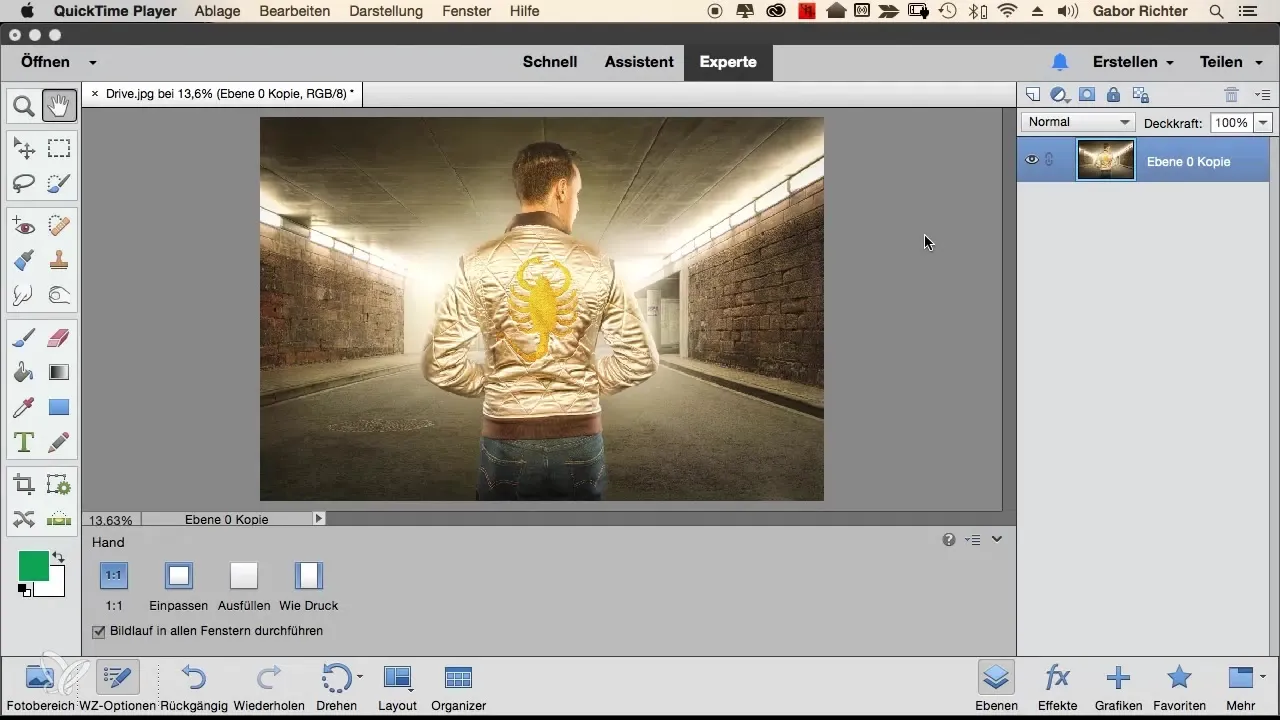
2. Adding a Blank Layer
To add a new blank layer, click on the new layer icon, often represented as a sheet of paper or block. This blank layer will now appear in your Layers panel and is ready for your input or drawings. You will notice that the thumbnail of the blank layer shows a pattern but has no content yet.
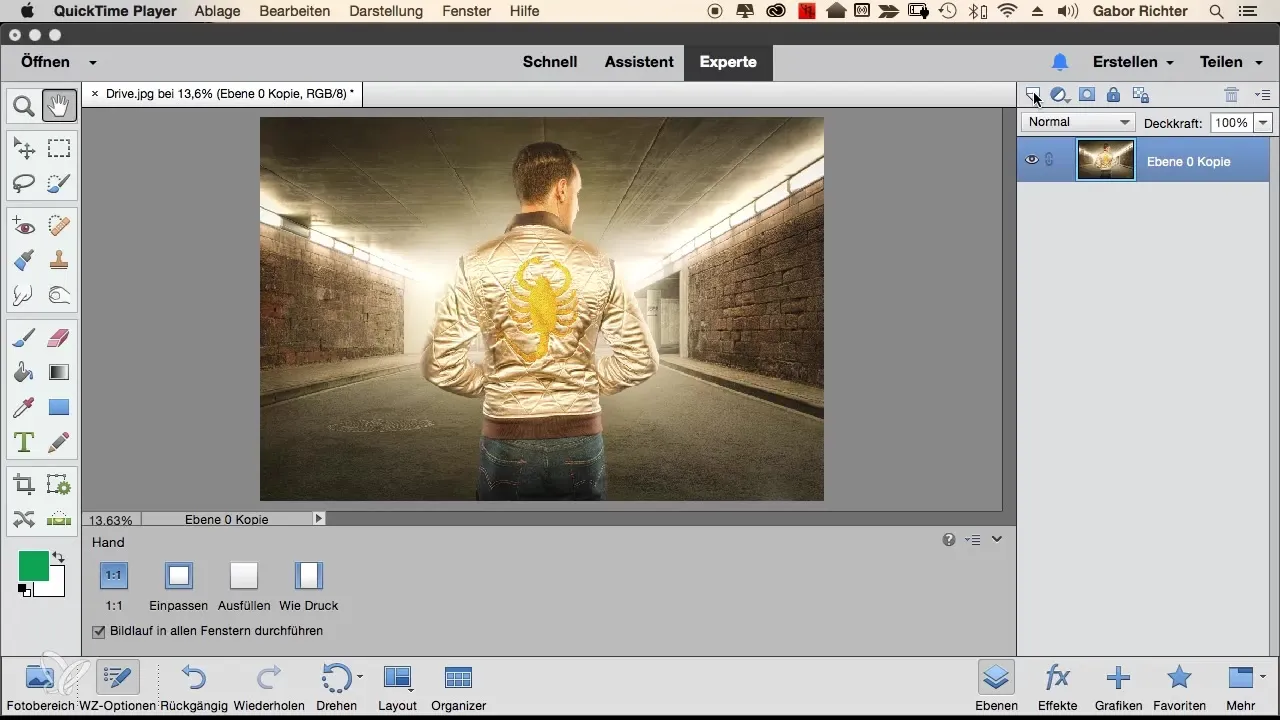
3. Actively Working with the Blank Layer
To create something on the blank layer, select the brush tool and add, for example, a smiley face. A new element will now be added to your image. It is useful to choose different layer thumbnails to improve visibility and clarity, especially when working with many layers.
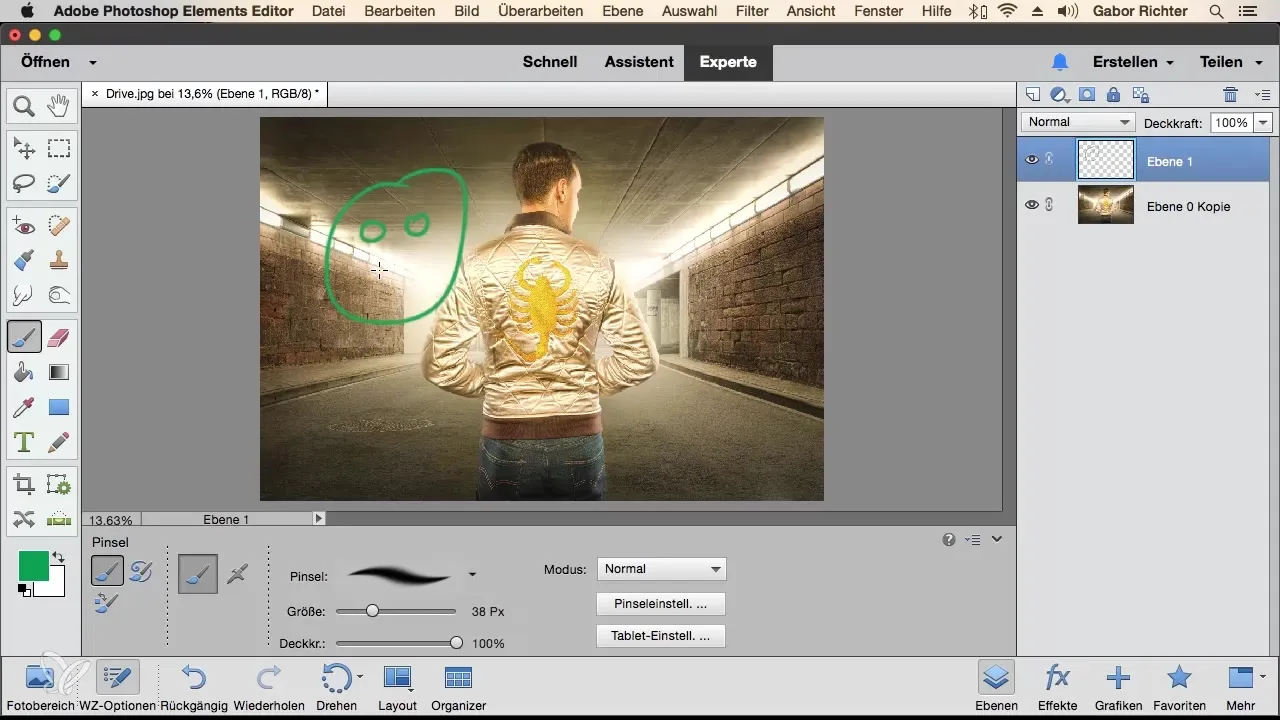
4. Disabling Layers
When working with the visibility of layers, you can enable or disable them using the eye icon in the Layers panel. This allows you to see which elements are visible in the image and which are not. If you disable the top layer, only the layer below it will be displayed.
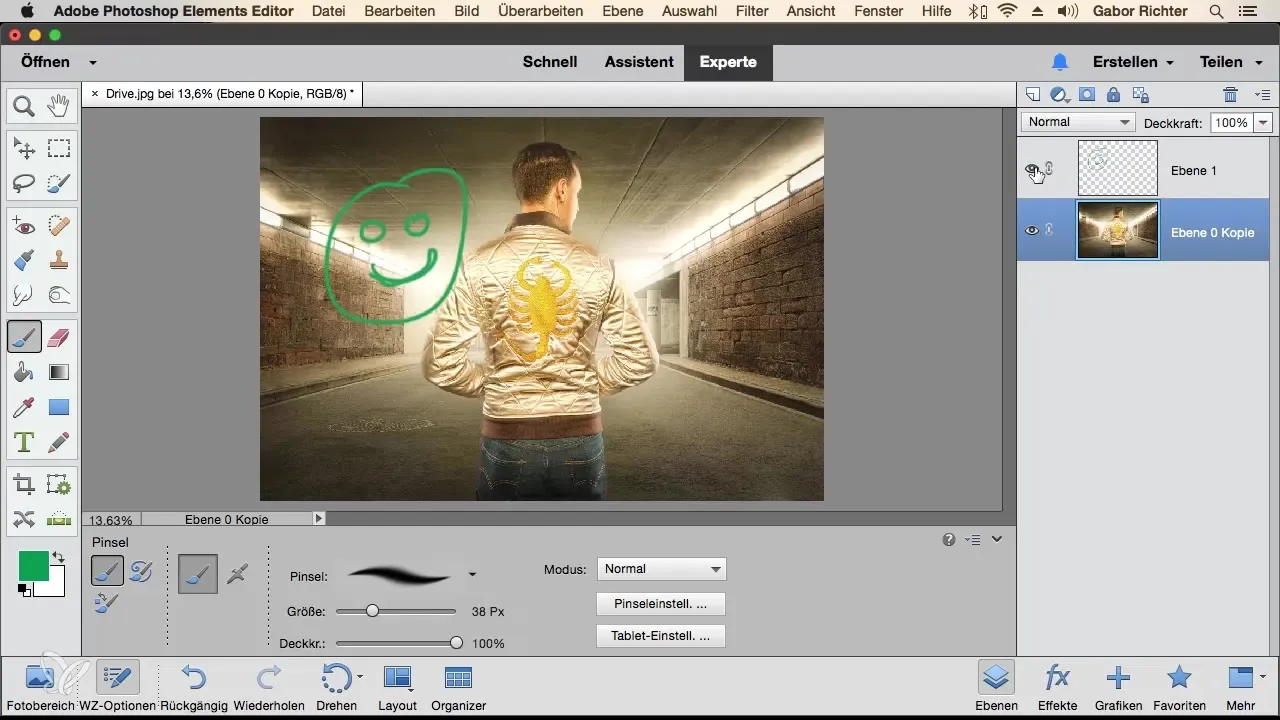
5. Vector Graphics Layer
To design with vector graphics, you need to create a special vector layer. Use the corresponding icon to add this layer. Vector layers are ideal for logos and other graphic-based designs as they can be scaled or altered without loss of quality.
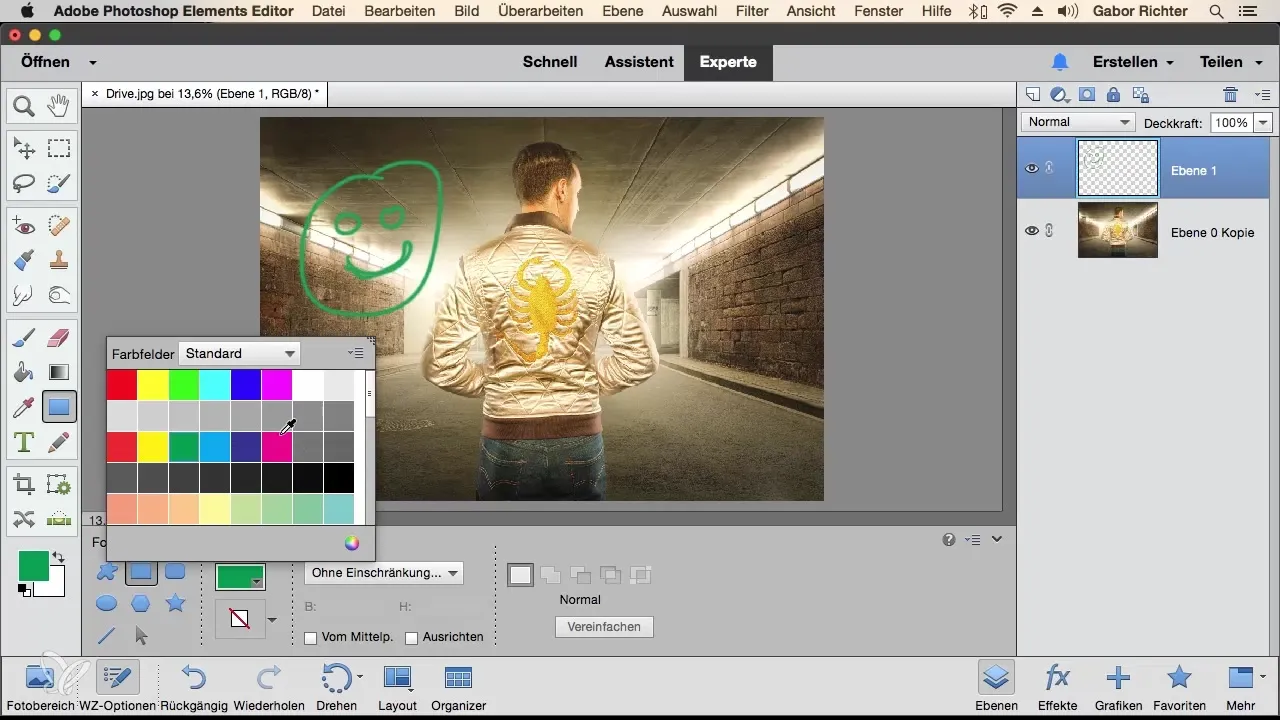
6. Creating Text
You can easily create a text layer by clicking on the text icon and dragging a text area. You can then enter your desired text and adjust the color, font, and size as needed. Note that text layers are displayed with a "T" symbol in the thumbnail.
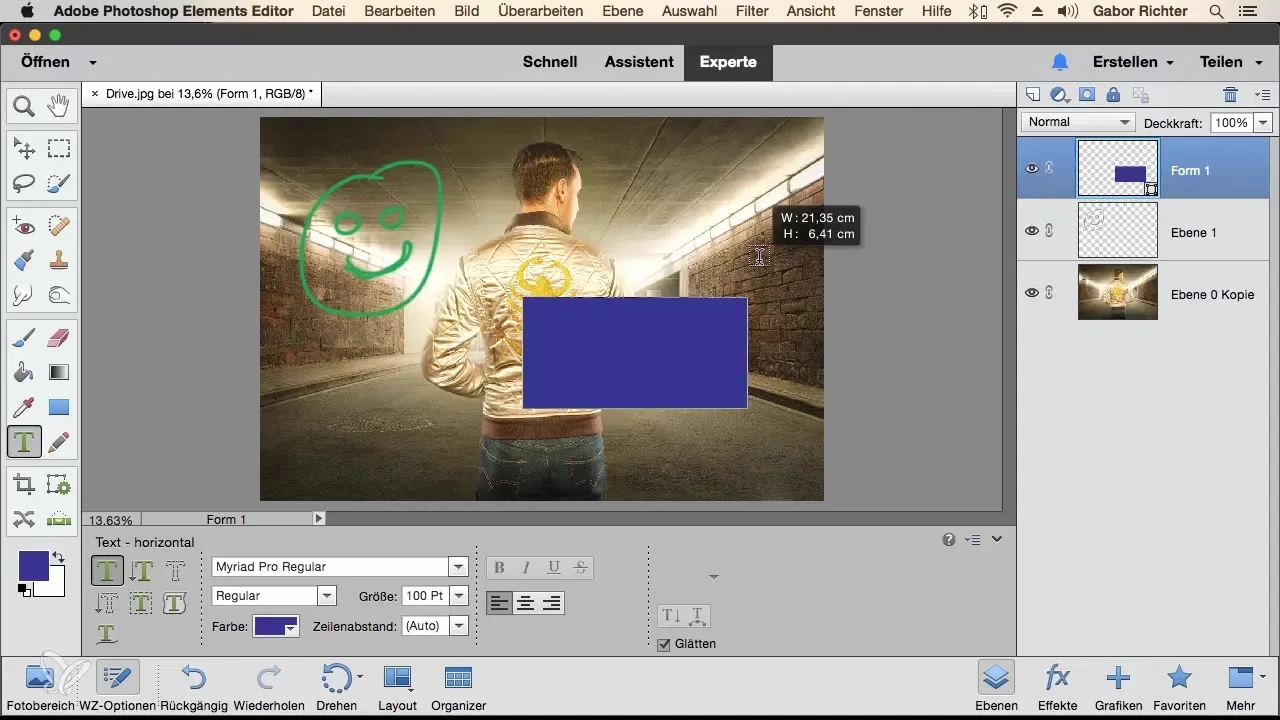
7. Using Adjustment Layers
Adjustment layers are essential for making basic adjustments to your image, such as hue, saturation, or black-and-white conversion. Add an adjustment layer and select, for example, "Hue/Saturation" to adjust the colors in the image and achieve a new look. This type of layer does not alter the original image but only affects the layers below it.
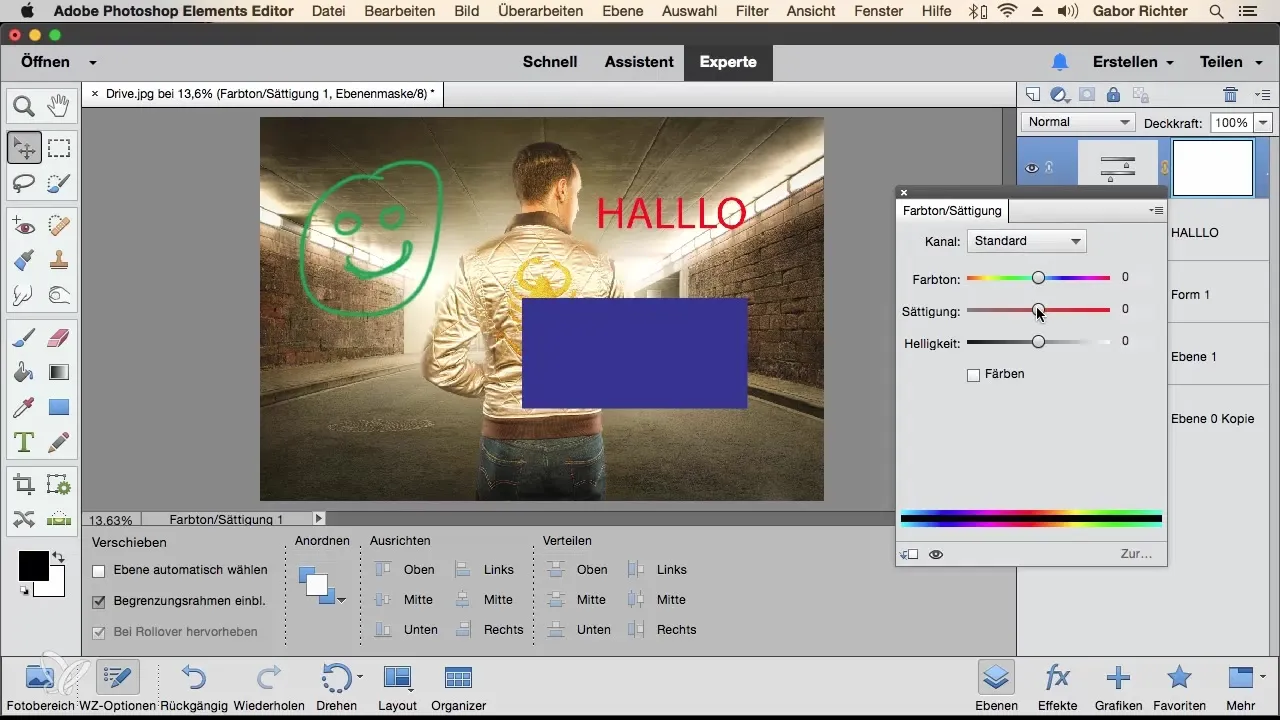
8. Adding Color Fields
A color field can be added to give your project a consistent color design. These layers can be easily adjusted and give you the ability to set colors for the entire background or specific elements of your composition.
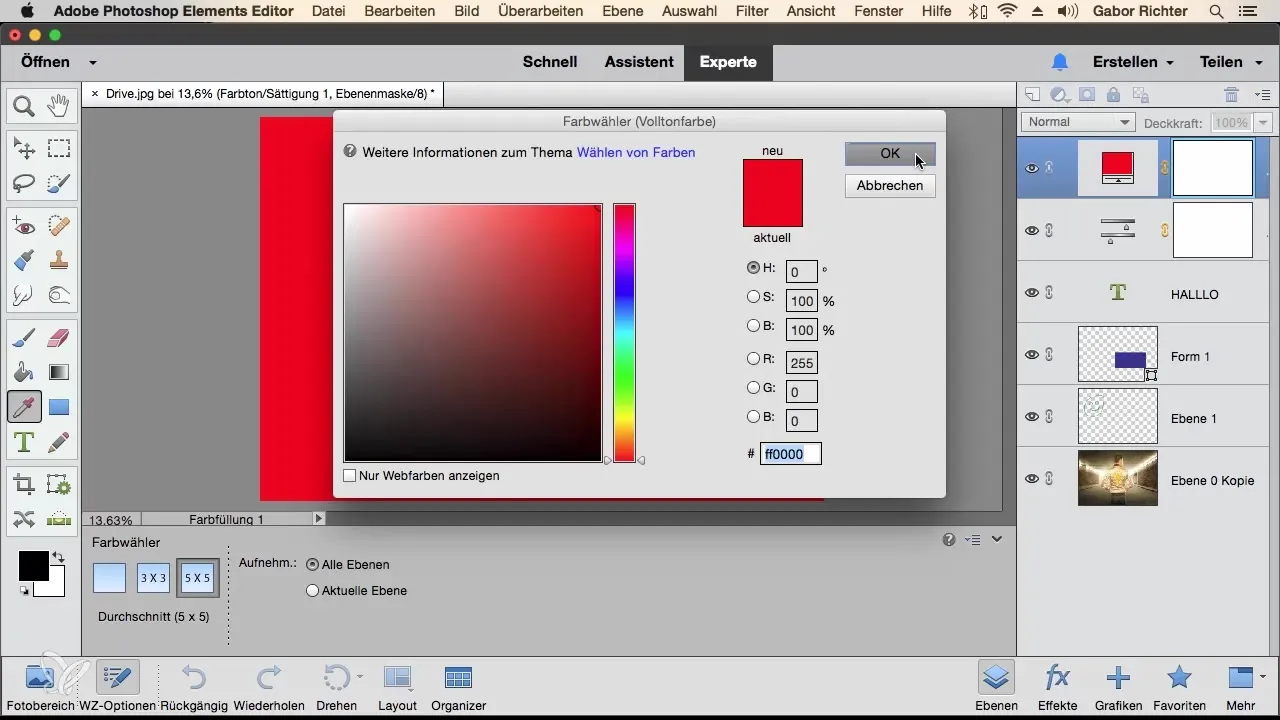
9. Arranging Layers
The arrangement of layers is crucial for the visual hierarchy in your project. You can select layers and move them up or down, as well as adjust them, changing the foreground or background. Here, the visibility of the top layer is influenced by the layer below it. Experiment with the arrangement to achieve the best effect for your image.
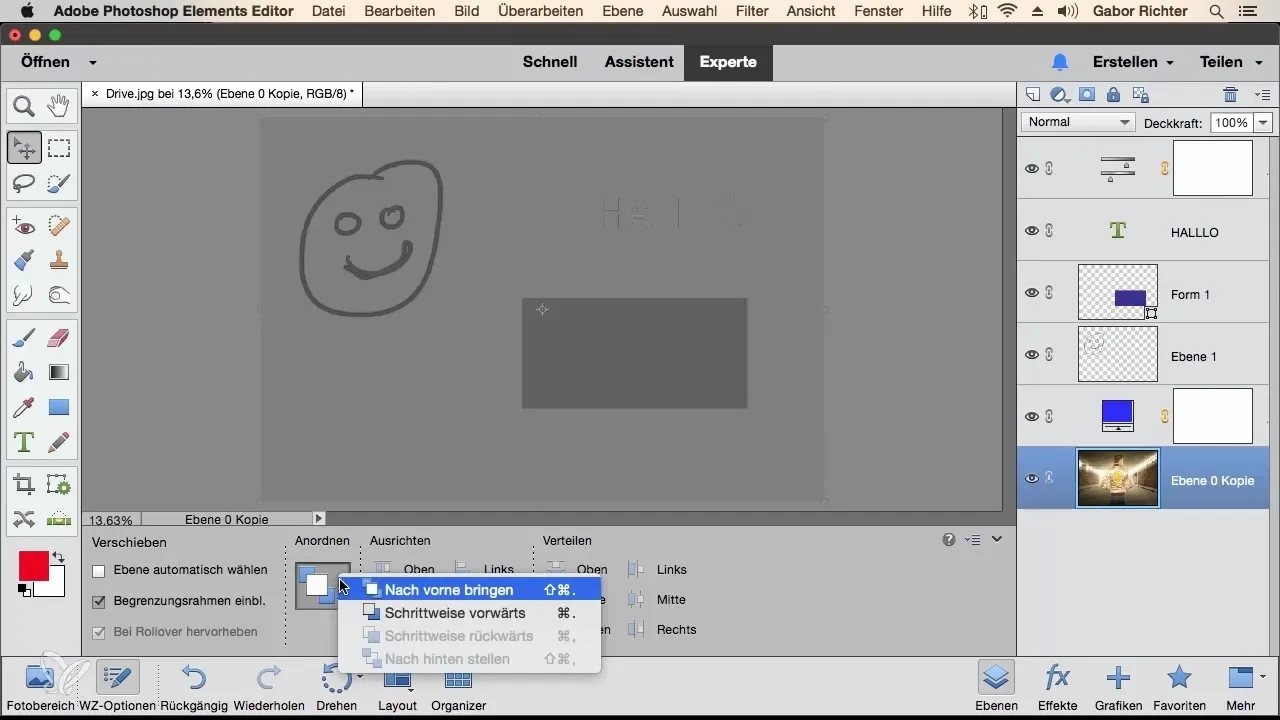
Summary – Diverse Types of Layers in Photoshop Elements
With this guide, you have learned the basic requirements to work effectively with various types of layers in Photoshop Elements. Whether you use pixel, vector, or text layers, the right understanding of their application is key to creative and professional image editing.
Frequently Asked Questions
What are layers in Photoshop Elements?Layers are individual layers in an image that allow you to edit different elements independently.
How do I add a new layer?Click on the new layer icon in the Layers panel.
What is the difference between pixel and vector layers?Pixel layers consist of raster graphics, while vector layers consist of mathematical shapes and can be scaled without loss.
How can I control the visibility of layers?Use the eye icon next to the respective layer in the Layers panel to activate or deactivate visibility.
What are adjustment layers?Adjustment layers allow you to make color and tone adjustments without directly altering the original image.


